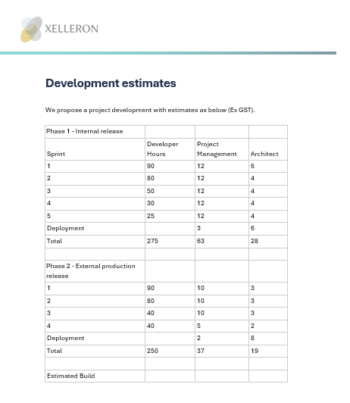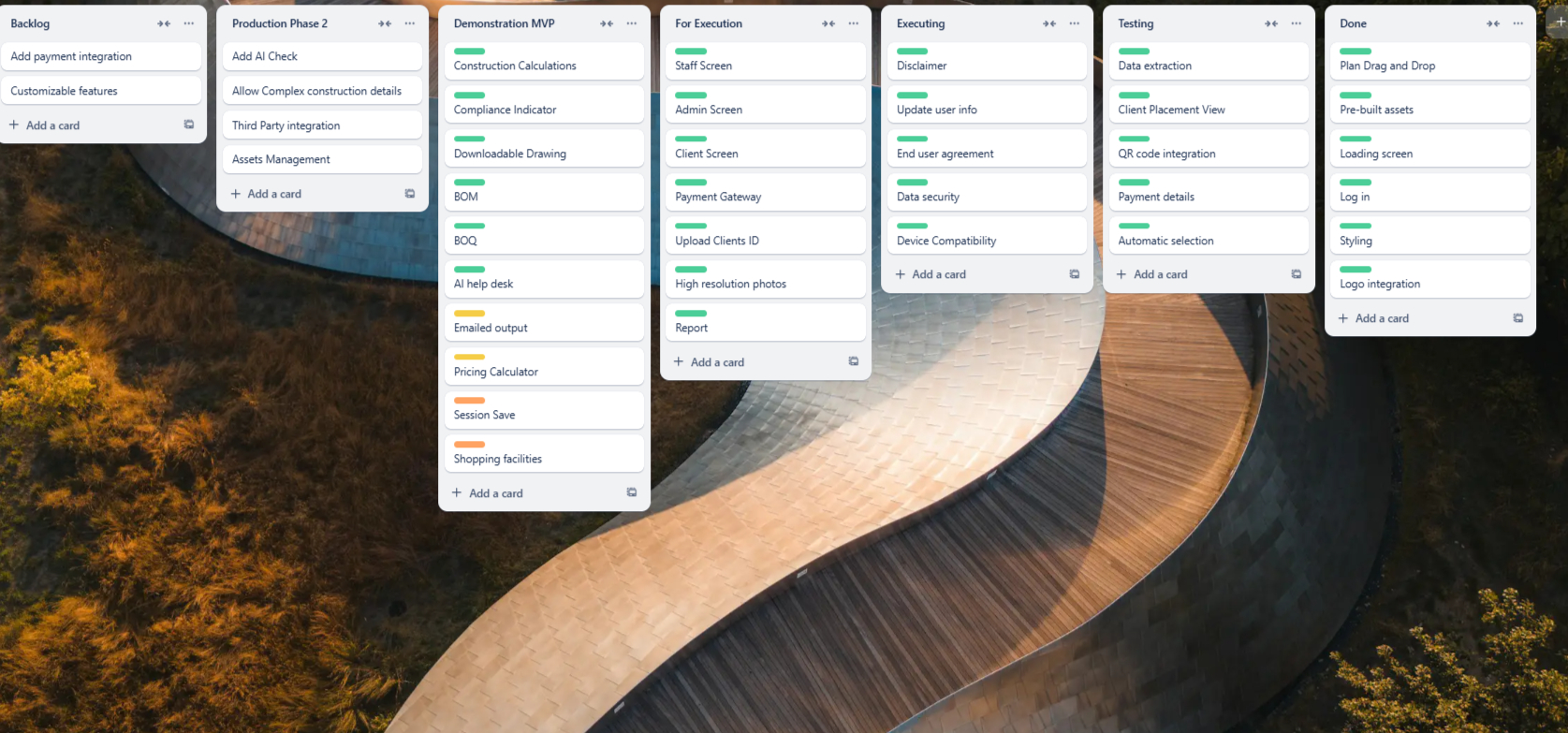Who we are
Xelleron was founded to address a growing need for stable, secure, easily customizable enterprise business software. In an ever changing world businesses need to be nimble and they need the right tools to take advantage of these new opportunities.
We created the Xelleron Framework to meet exactly these needs. Our framework allows for easy transition of your business processes from legacy spreadsheets and documents or other outdated solutions. Transforming these processes into a modern and agile framework which scales, is secure, which can reduce your risk as well as bringing efficiency benefits and potentially expanding your market reach.
What to expect next?
Phase 1: Initial Scoping Activities
An MVP is typically released quickly to provide immediate value.
Example Activities:
- Create a Trello board with cards detailing requirements/features.
- Set up a communication channel (e.g., Discord, MS Teams, or Slack) for team collaboration.
- Use the Trello board to develop initial estimates and an execution plan.
Outcomes
Initial estimates and an initial execution (Sprint) plan at least up to the MVP release. After phase 1, you should have a better documented understanding of your requirements.

Phase 2: Solution Development
With an initial plan in place, we’ll use agile methodology to build a solution aligned with your priorities and budget. Development progresses in sprints, completing Trello cards until you’re satisfied.
At the start of each sprint, we’ll select cards together. Extra cards can be added if tasks finish early, and any technical issues will be addressed collaboratively.
At the end of each sprint, we’ll demonstrate implemented features and update the test server for your team to try.
Sprint Process (1-2 weeks):
- Prioritization & Card Assignment
- Development
- Demonstration
This agile approach provides visibility into progress, control over priorities and budget, and ensures an efficient, purpose-fit build. Active participation from your team is essential.
For portals, we aim to deliver a version with key features early (typically after the first or second sprint) for testing and feedback. As you try the solution, you can adjust priorities, add, modify, or remove cards to achieve the best outcome.
Once satisfied with the solution, your team will perform acceptance testing before the solution is released to production. After the MVP release, additional features can be added through sprint–test–release cycles.

Notes
During Phase 1 Scoping, we’ll provide initial estimates. If changes arise (e.g., technical issues, new requirements, or feedback), we’ll notify you promptly and collaborate on the best path forward.
We strive to reuse components from our existing library whenever possible.
The Faces Shaping the Future at Xelleron
The Original Founders of Xelleron

Mark Jeacocke

Stefan Slomka
Meet Some of Our Dedicated Team Members

Anuradha Jayalath
Technical Lead

Brayden McLaren
Junior Software Developer

Calum McGonigle
Growth and Partner Manager

Champike Karunatilake
Senior Software Engineer

Chamindu Weerasinghe
Senior Software Engineer

Chandimal Thilakarathna
Senior Technical Lead

Dean Jackson
Project Manager

Lewis Niroshan
Senior Software Engineer

Mark Ting-Williams
Junior Software Developer

Noah Stevens
Junior Software Developer

Robert Slomka
Software Developer

Sahan Fernando
Senior Software Engineer

Scott Maher
Software Engineer – Application Design

Sinthujan Punniyamoorthy
Senior Software Engineer
Our Vision
No one knows your business the way you do. Our vision is to enable you to implement your visions! To provide a framework upon which businesses can rely and one which is easy for them to extend themselves.
Our Values
Xelleron is a equal opportunity company which fully respects the rights of every individual. We hold ourselves to the highest professional, ethical and moral standards. We take great pride in delivering high quality products and giving responsive, informed and friendly customer support.
